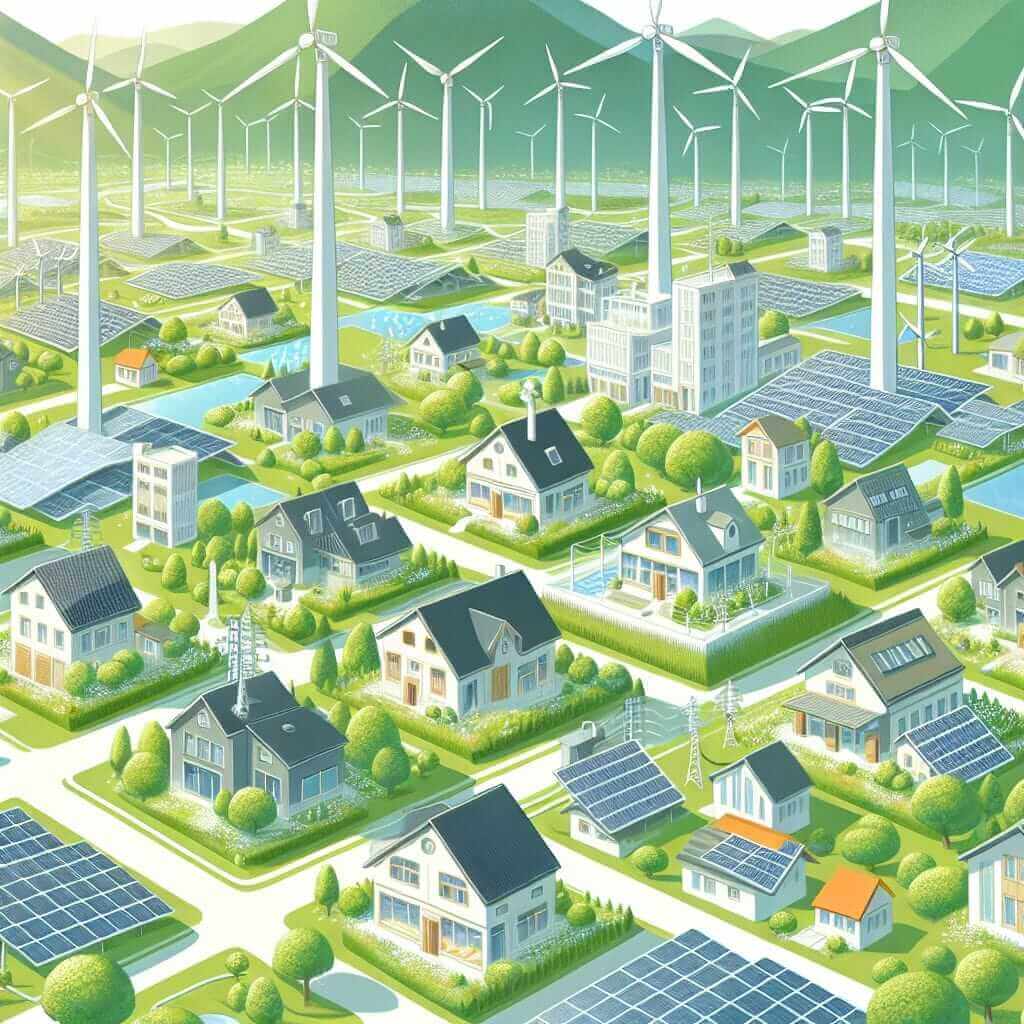The Reading section of the IELTS exam tests your ability to understand and interpret texts on various topics. As renewable energy becomes increasingly significant in global discussions, its impact on national security has surfaced as a pertinent topic, reflecting both current affairs and historical trends in IELTS reading materials. This practice test delves into the topic “What are the effects of renewable energy on national security?”—a subject that could appear in future IELTS exams due to its relevance.
Practice Reading Test
Text: The Implications of Renewable Energy on National Security
Renewable energy sources, such as wind, solar, and hydropower, are increasingly being integrated into national energy policies worldwide. Their impact on national security is multifaceted and profound. This article explores several key areas where renewable energy influences national security.
One primary effect is the reduction of dependency on imported fossil fuels, which often come from politically unstable regions. This reduction mitigates risks associated with supply disruptions caused by geopolitical tensions or conflicts. Moreover, less reliance on foreign oil can reduce a nation’s vulnerability to global oil price fluctuations, thereby enhancing economic stability.
In addition to supply security, renewable energy contributes to infrastructure resilience. Traditional energy infrastructures are often centralized and susceptible to large-scale failures due to natural disasters or sabotage. In contrast, renewable energy systems, especially those utilizing local resources, promote decentralization, making energy grids more resilient to such disruptions.
Another significant impact is on military operations. Renewable energy can provide reliable, sustainable power sources for military bases, both domestic and overseas. This can reduce the logistical challenges and risks associated with transporting fuel in conflict zones, thus enhancing operational efficiency and safety.
Lastly, on a broader scale, the proliferation of renewable energy contributes to the global effort against climate change. National security is closely linked to climate security. As climate change exacerbates natural disasters, food and water shortages, and displacement, investing in renewable energy can be a strategic move to mitigate these threats and thus enhance overall security.
Questions
Multiple Choice (Choose the correct letter, A, B, C or D)
-
According to the text, what is a primary benefit of renewable energy for national security?
- A. Increasing dependency on foreign resources
- B. Reducing supply disruptions from geopolitical tensions
- C. Centralizing energy infrastructures
- D. Decreasing national economic stability
-
The article suggests that renewable energy systems are particularly resilient because they:
- A. Make use of foreign oil
- B. Are highly centralized
- C. Utilize local resources for decentralization
- D. Are dependent on fossil fuels
True/False/Not Given
-
Renewable energy sources can reduce the logistical challenges of transporting fuel to military bases.
- A. True
- B. False
- C. Not Given
-
The text mentions that traditional energy infrastructures are more resistant to natural disasters than renewable energy systems.
- A. True
- B. False
- C. Not Given
Answer Key and Explanations
Multiple Choice
-
B. The text mentions that renewable energy reduces dependency on fossil fuels from politically unstable regions, thus mitigating risks associated with supply disruptions from geopolitical tensions.
-
C. The renewable energy systems utilize local resources, promoting decentralization, which makes energy grids more resilient to disruptions.
True/False/Not Given
-
A (True). The text states that renewable energy can provide sustainable power sources for military bases, reducing the logistical challenges of fuel transport.
-
B (False). The text actually contrasts traditional centralized infrastructures with decentralized renewable systems, implying that renewable systems are less susceptible to large-scale failures due to natural disasters or sabotage.
Common Mistakes
- Misinterpreting key terminology: Words like “decentralization” and “resilience” should be understood in context.
- Overlooking specific details: Ensure you grasp how each point, such as the aspect of military operations, relates to national security.
- Skipping context for summary answers: Always read the surrounding sentences to understand fully.
Vocabulary
- Dependency (Noun) /dɪˈpɛndənsi/: A state of relying on or being controlled by someone or something else. “The country’s dependency on foreign oil has decreased.”
- Geopolitical (Adjective) /ˌdʒiː.oʊ.pəˈlɪt̬.ɪ.kəl/: Relating to politics influenced by geographical factors. “Geopolitical tensions often affect global oil prices.”
- Decentralization (Noun) /ˌdiːsɛntrəlaɪˈzeɪʃən/: Distribution of power away from a central authority. “Decentralization of energy resources can enhance grid resilience.”
Grammar Points
- Passive Voice: Used to highlight action done to the subject.
- Example: “Energy infrastructures are often centralized and susceptible to large-scale failures.”
- Comparative Structures: Used for drawing comparisons.
- Example: “Renewable energy systems, especially those utilizing local resources, promote decentralization, making energy grids more resilient.”
Tips for High IELTS Reading Scores
- Practice Regularly: Familiarize yourself with different text types and question formats.
- Expand Vocabulary: Learn new words, specifically those related to common IELTS topics.
- Time Management: Practice managing your time effectively to complete all questions.

Focus on understanding and improving your reading comprehension to excel in your IELTS exam. Happy studying!